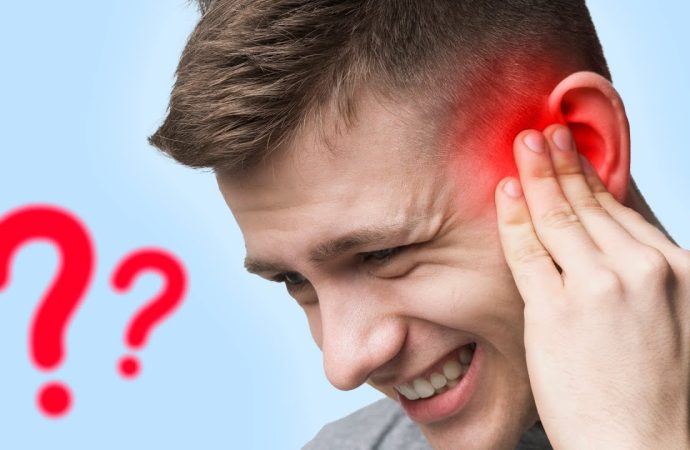Understanding the Sensation of Blocked Ears Blocked ears can be a discomforting sensation, often accompanied by reduced hearing capacity and a feeling of pressure within the ear canal. While this experience can be bothersome, understanding its causes and potential remedies is crucial for alleviating discomfort and maintaining ear health. Explore More About (Teeth And Bones
Understanding the Sensation of Blocked Ears
Blocked ears can be a discomforting sensation, often accompanied by reduced hearing capacity and a feeling of pressure within the ear canal. While this experience can be bothersome, understanding its causes and potential remedies is crucial for alleviating discomfort and maintaining ear health. Explore More About (Teeth And Bones Health)
Common Causes of Blocked Ears
There are several factors that can contribute to the feeling of blocked ears:
Earwax Buildup:
Earwax, also known as cerumen, is produced by glands within the ear canal and serves to lubricate and protect the ear. However, excessive buildup of earwax can lead to blockages, causing a sensation of fullness and reduced hearing.
Eustachian Tube Dysfunction:
The Eustachian tube is a narrow passage that connects the middle ear to the back of the nose and throat. Dysfunction of this tube, often due to allergies, sinus infections, or changes in air pressure (such as during air travel or scuba diving), can result in a feeling of ear blockage.
Ear Infections:
Infections of the ear, whether in the outer or middle ear, can lead to inflammation and fluid buildup, causing a sensation of fullness and blockage.
Temporomandibular Joint (TMJ) Disorder:
Dysfunction of the TMJ, which connects the jawbone to the skull, can sometimes cause referred pain to the ears and a feeling of congestion.

Image by: yendex.com
Symptoms Associated with Blocked Ears
In addition to the sensation of blockage itself, individuals experiencing blocked ears may also encounter the following symptoms:
- Reduced Hearing: A noticeable decrease in hearing capacity, often described as muffled or dulled sounds.
- Pressure or Pain: Discomfort or pain within the ear, sometimes accompanied by a feeling of fullness or pressure.
- Tinnitus: Ringing, buzzing, or other phantom noises in the ear, which may accompany the sensation of blockage.
Treatment Options for Blocked Ears
The appropriate treatment for blocked ears depends on the underlying cause. Some common remedies include:
Ear Irrigation:
In cases where earwax buildup is the culprit, irrigation with warm water or saline solution can help to soften and remove the excess wax.
Nasal Decongestants:
If Eustachian tube dysfunction is contributing to the blockage, nasal decongestants or antihistamines may help to reduce inflammation and promote drainage.
Antibiotics:
For ear infections, particularly those caused by bacteria, a course of antibiotics may be prescribed to clear the infection and alleviate symptoms.
Jaw Exercises:
In instances of TMJ disorder-related ear blockage, exercises to strengthen and stretch the jaw muscles may provide relief.
Ear Tubes:
In severe or chronic cases of Eustachian tube dysfunction or recurrent ear infections, the placement of ear tubes (tympanostomy tubes) may be recommended to facilitate drainage and ventilation of the middle ear.

Image by: yendex.com
Preventing Blocked Ears
While some causes of blocked ears may be unavoidable, there are steps individuals can take to reduce their risk:
- Practice Good Ear Hygiene: Avoid inserting objects into the ear canal, as this can push wax deeper and lead to blockages.
- Manage Allergies: Minimize exposure to allergens and consider allergy medications or nasal sprays to reduce inflammation.
- Equalize Pressure: During activities such as flying or diving, equalize ear pressure by swallowing, yawning, or using specialized techniques.
When to Seek Medical Attention
While mild cases of blocked ears may resolve on their own or with home remedies, it’s essential to seek medical attention if the following occur:
- Severe Pain: Intense or persistent ear pain should prompt a visit to a healthcare provider to rule out serious conditions such as an ear infection or injury.
- Sudden Hearing Loss: A sudden and significant decrease in hearing warrants immediate evaluation by a medical professional.
- Fever or Drainage: Fever, drainage from the ear, or other signs of infection require prompt medical attention to prevent complications.
Treatment Options for Blocked Ears
| Treatment Option | Description |
|---|---|
| Ear Irrigation | Warm water or saline solution used to soften and remove excess earwax. |
| Nasal Decongestants | Medications that reduce inflammation and promote drainage of the Eustachian tube. |
| Antibiotics | Prescribed to clear bacterial infections in the ear and alleviate associated symptoms. |
| Jaw Exercises | Strengthening and stretching exercises for the jaw muscles to relieve TMJ-related ear blockage. |
| Ear Tubes | Surgical placement of tubes to facilitate drainage and ventilation of the middle ear in chronic cases. |
Conclusion
The sensation of blocked ears can range from mildly annoying to significantly discomforting, impacting daily activities and quality of life. By understanding the common causes, symptoms, and treatment options for this condition, individuals can take proactive steps to alleviate discomfort and maintain optimal ear health. If experiencing persistent or severe symptoms of blocked ears, seeking guidance from a healthcare professional is essential to ensure appropriate diagnosis and treatment.




















